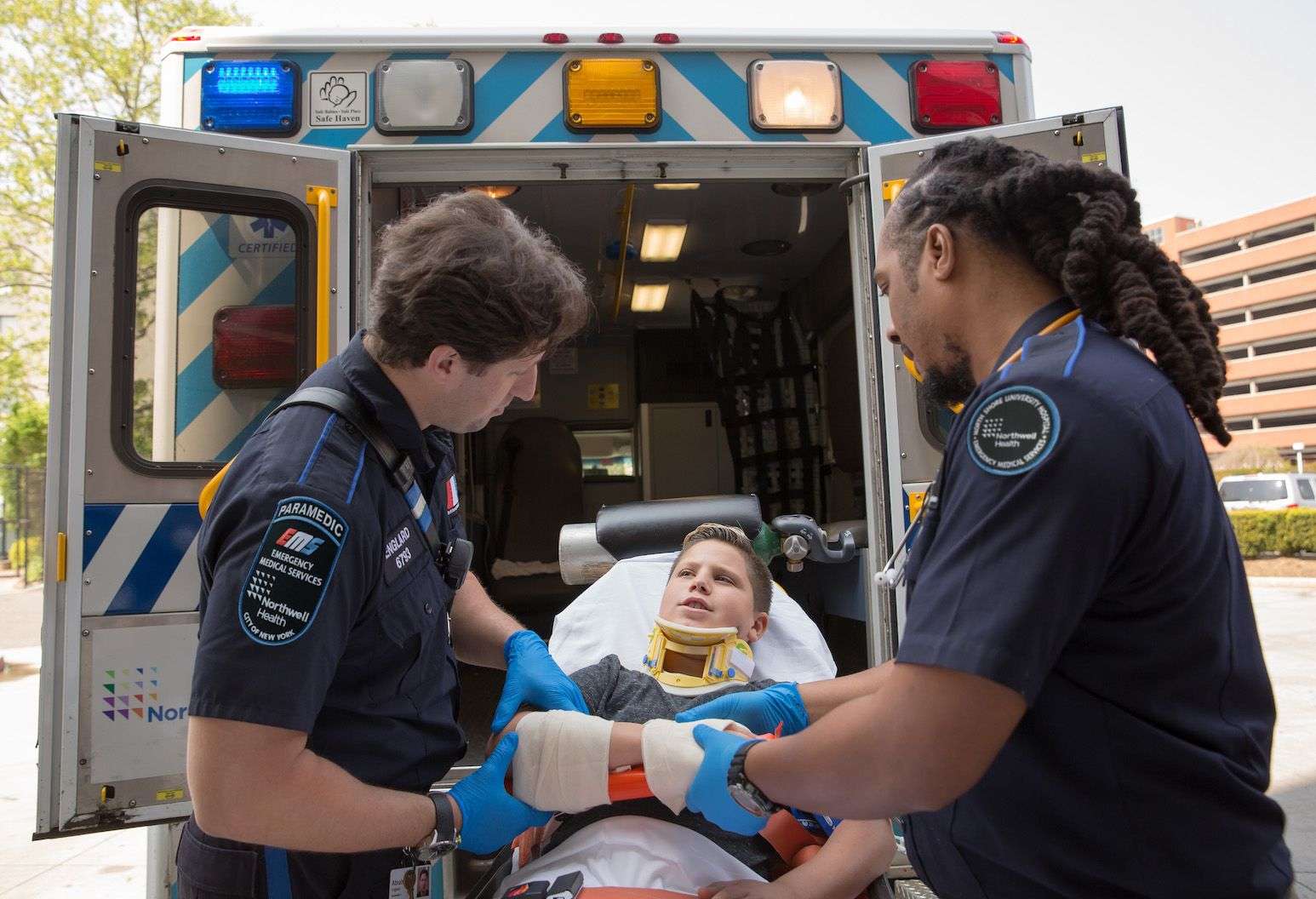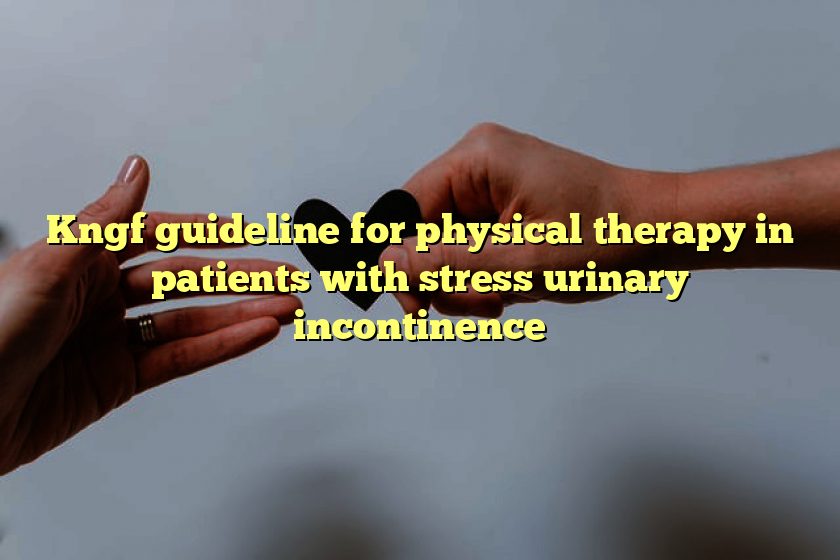New York State Trauma Centers
The Department also maintains summary information on hospitals and the quality of care they provide. That hospital specific information can be found on the New York State Hospital Profile page.
Regions:
Nassau Region
Level I Adult Trauma Center
- Nassau University Medical Center
2201 Hempstead Turnpike
East Meadow, NY 11554-1854
Adult Only - North Shore University Hospital
300 Community Drive
Manhasset, NY 11030
Adult Only - NYU Winthrup University Hospital
259 Mineola Street
Mineola, NY 11501-3932
Adult Only
Level II Adult Trauma Center
- South Nassau Communities Hospital
1 Health Road
Oceanside, NY 11572
Adult Only
Hudson Valley Region
Level I Adult & Pediatric Trauma Center
- Westchester Medical Center
100 Woods Road
Valhalla, NY 10595-8251
Adult and Pediatric
Level II Trauma Center
- Mid Hudson Regional Hospital of Westchester Medical Center (formerly St. Francis Hospital)
241 North Road
Poughkeepsie, NY 12601
Level II Adult Only - Garnet Health Medical Center
(formerly Orange Regional Medical Center)
707 East Main Street
Middletown, NY 10940
Adult Only, Level II - Vassar Brothers Medical Center
45 Reade Place
Poughkeepsie, N.Y. 12601
Adult Only, Level II
Level III Trauma Center
- St. Luke’s Cornwall Hospital
70 Dubois Street
Newburgh, N.Y. 12550
Adult Only, Level III
- Montefiore Nyack Hospital
160 North Midland Avenue
Nyack, NY 10960
Adult Only - Good Samaritan Hospital
255 Lafayette Ave
Suffern NY 10901
Adult Only, Level III, Provisional
Northeastern NY Region
Level I Adult Trauma Center
- Albany Medical Center Hospital
43 New Scotland Avenue
Albany, NY 12208
Level I Adult and Level II Pediatric - University of Vermont Medical Center
111 Colchester Avenue
Burlington, VT 05401
Level III Adult Trauma Center
- Bassett Medical Center
One Atwell Road
Cooperstown, NY 13326-1394
Level III Adult - Champlain Valley Physicians Hospital
75 Beekman Street
Plattsburgh, NY 12901
Adult Only
Central NY Region
Level I Adult & Pediatric Trauma Center
- Upstate University Hospital
750 East Adams Street
Syracuse, NY 13210
Adult and Pediatric
Level II Adult Trauma Center
- United Health Services Hospital – Wilson Medical Center
33-57 Harrison Street
Johnson City, NY 13790
Adult Only
Level III Adult Trauma Center
- St. Elizabeth’s Medical Center
2209 Genesee Street
Utica, NY 13501
Adult Only
- Canton Potsdam Hospital
50 Leroy Street
Canton Postdam, NY 13676
Adult Only, Level III
Western NY Region
Level I Adult Trauma Center
- Erie County Medical Center
462 Grider Street
Buffalo, NY 14215
Adult Only
Level I Pediatric Trauma Center
- John R. Oishei Children’s Hospital
818 Ellicott Street,
Buffalo, NY 14203
Finger Lakes Region
Level I Adult Trauma Center
- Strong Memorial Hospital
601 Elmwood Avenue
Rochester, NY 14642
Adult and Pediatric
Level II Adult Trauma Center
- Guthrie Robert Packer Hospital
One Guthrie Square
Sayre, PA
Adult Only
At the Trauma Center at NYU Langone Hospital—Long Island, our team provides the highest level of lifesaving care, including diagnosis, surgical intervention, treatment, and rehabilitation.
Your treatment begins with our emergency medical service providers who provide care at the scene of your injury and during transport. When you arrive at our center, you are cared for by our team of specialists that includes trauma surgeons, neurosurgeons, orthopedic surgeons, emergency medicine physicians, anesthesiologists, physician assistants, trauma nurses, radiology specialists, respiratory therapists, and rehabilitation experts.
Level 1 Trauma Center
As a state-designated Level 1 Trauma Center, verified by the American College of Surgeons, our trauma and critical care surgeons, along with medical specialists, are available anytime, day or night. Our team provides treatment for the most serious injuries, including motor vehicle collisions, falls, accidents, and other life-threatening traumas. Our facility is equipped with the full range of adult trauma resources, and we are also able to assess pediatric injuries.
Located within the Emergency Department at NYU Langone Hospital—Long Island, our team is able to deliver all types of immediate surgical care, including neurosurgery and orthopedic surgery. Our trauma facility is a dedicated space that includes a resuscitation unit with operating room capabilities and the most advanced life-support technology.
Recognition
NYU Langone Hospital—Long Island is home to an American College of Surgeons–verified and New York State–designated Level 1 Trauma Center.
Treatment may continue in the advanced intensive care units at NYU Langone Hospital—Long Island, where we provide patient-centered care that is focused on supporting you through the healing process. Physical therapy, occupational therapy, speech therapy, and other rehabilitation treatments from NYU Langone’s Rusk Rehabilitation are prescribed as necessary to help you through your recovery.
Community Outreach
Through our community outreach programs, we educate the public on ways to reduce the risk of injury and save lives, including fall prevention and training to stop life-threatening bleeding.
Our Fall Prevention Program for Older Adults aims to reduce the risk of falls, which are a leading cause of head injury and hip fracture. Through our hospital-based programs and partnerships with community groups, we provide tips and strategies that include regular vision exams and maintaining an exercise routine.
Our programs to help maintain and improve balance include the following:
- A Matter of Balance, made up of eight sessions of two hours each, is designed to increase activity levels and reduce fears of falling.
- Stepping On, consisting of seven sessions of two hours, focuses on community mobility, home hazards, medication reviews, safe footwear, and vision.
- Tai Chi for Arthritis and Fall Prevention helps older adults increase their confidence performing everyday activities. The workshop lasts eight weeks, with two hour-long classes weekly.
CarFit, another program for older adults, helps drivers improve the personal fit in their vehicle, including proper positioning of mirrors and seats. During this 20-minute evaluation, trained professionals ensure each driver can correctly adjust their vehicle to fit them, and provide safety information and materials to promote continued driving mobility.
We also offer a Stop the Bleed training course, which teaches people with little or no medical training how to recognize and control excessive bleeding caused by a traumatic injury. During this in-person, hands-on training session, participants learn how to apply a tourniquet and use pressure to stop bleeding. Participants receive a certificate of completion.
For more information on these programs, please call 516-663-9643 or email [email protected].
With trauma and emergency services, where you seek treatment really matters. That’s because with major trauma, every second counts. We’re talking about injuries from motor vehicle crashes, falls from height or down stairs, burns, and combined or multisystem injuries. For these you need an expert team with the experience and technology to make a quick and correct diagnosis. You need dedicated operating rooms with trauma surgeons available 24/7. You need unlimited access to a blood supply and immediate access to trauma specialists and emergency physicians, as well as experts from a wide variety of medical specialties. And you need it fast — every day of the year, every hour of the night.
With minor emergencies, you need the expertise, sophisticated processes and gold standard procedures in place to keep minor things minor so you can get back to your life as quickly as possible without complications.
For both, there’s Stony Brook Medicine. Not only have we been Suffolk County’s only Level 1 Trauma Center for the past 20 years – meaning that we care for the most critical patients – but recent statistics show that Stony Brook is one of two hospitals in New York with the best survival rates for seriously injured patients among all the trauma centers in the state. This includes Manhattan and all of Long Island. If you are sick or injured, Stony Brook is where you want to be.
A Regional Trauma Center with Level I Designation
Stony Brook is what’s known as a regional trauma center. This means that it has been designated by New York State to handle the most severe injuries and most complex cases. As the county’s only Level I Trauma Center, Stony Brook provides a level of care beyond the capabilities of the emergency rooms at local hospitals. In fact, patients who arrive at community hospitals with serious illness or injury are often transported to Stony Brook.
What does the Level I designation mean? Although the criteria differ by state, the trauma center ranking system (Level I, II, III, IV or V) refers to the kinds of resources and the standard of care available, as well as the ability to handle a certain volume of severely injured patients. Level I is the highest designation, indicating that the most advanced care is available. Level I facilities such as Stony Brook are typically part of a comprehensive tertiary care facility that serves an entire region. They are able to provide 24-hour, in-house (as opposed to on-call) coverage by trauma surgeons, as well as prompt availability of care in specialties such as orthopaedic surgery, neurosurgery, anesthesiology, emergency medicine, radiology, internal medicine, plastic surgery, oral and maxillofacial, pediatrics and critical care. Level I trauma centers also take a leadership role in prevention, public education and continuing education of trauma team members, along with participating in research and quality assessment initiatives.

Division of Trauma & Acute Care Surgery
In the Division of Trauma and Acute Care Surgery, we care for more than 2,000 critically injured trauma patients each year admitted to the Trauma Center at NYU Langone Hospital—Long Island. As a state-designated Level 1 Trauma Center, verified by the American College of Surgeons, we provide treatment for the most serious injuries including motor vehicle collisions, industrial incidents, intentional injury, falls, and other life-threatening trauma. Our facility is equipped with the full range of resources to treat any type of critical injury.
Our mission is to provide comprehensive care using immediate and, if needed, resuscitative measures. Our goal is to provide early assessment and stabilization of all patients with traumatic injuries as well as comprehensive treatment of the critically injured. The Department of Surgery emphasizes the role and function of the trauma service in all surgical staff recruitment, demonstrating the department’s commitment to the service.
Trauma and Acute Care Clinical Services
Taking care of the injured is a complex responsibility that involves a skilled multidisciplinary team. Our trauma service is staffed by expert personnel who are committed to providing high-level, comprehensive care to our patients. We have developed systems to ensure that patients with acute injuries quickly receive initial care, and that doctors with highly sophisticated skills are available to provide individualized treatment.
Our trauma service consists of surgeons who are double board-certified in trauma and acute care surgery as well as critical care; advanced care practitioners who are specially trained to care for patients with trauma; surgical residents; and rotating medical students. Along with emergency medicine physicians and surgical subspecialists in neurosurgery, orthopedics, vascular surgery, plastic surgery, oral and maxillofacial surgery, and others, we are ready 24 hours a day, 7 days a week to care for any patient.
Nurses at NYU Langone Hospital—Long Island also have a key role in the success of the trauma service. Through a joint effort between the surgical and emergency nursing teams, we practice staff recruitment and training specific to trauma nursing. The highly skilled functioning of the nursing component of our trauma service is integral to the safety and wellbeing of patients with traumatic injuries.
Trauma and Acute Care Surgery Education
The trauma service is actively involved in teaching and research activities. Our faculty offer educational opportunities to medical students, surgical residents, and clinical fellows who are pursuing surgical subspeciality training.
At NYU Langone Hospital—Long Island, we are dedicated to training the surgeons of the future, including those focusing on trauma and acute care surgery or bariatric surgery. NYU Long Island School of Medicine’s General Surgery Residency is a dynamic program in which residents are exposed to the array of injuries seen at our Level 1 Trauma Center. Surgical residents are trained to care for critically injured patients who require surgery while also learning about the social determinants of health. Our program teaches residents and rotating medical students and physician assistants how to become leaders in their field. Our surgical residency has demonstrated its competitiveness with an outstanding fellowship match rate in our graduating residents.
The Trauma Center at NYU Langone Hospital—Long Island is dedicated to educating early-career surgeons. Our team provides a robust didactic experience that includes daily table rounds with educational presentations, weekly trauma and American College of Surgeons continuing medical education lectures, monthly trauma morbidity and mortality conferences, and quarterly emergency medical services conferences focused on our pre-hospital colleagues. Residents and students learn how to research and present topics and are encouraged to become involved in research projects led by the division. We are a center for Advanced Trauma Life Support and Trauma Nursing Core Course.
At the center of any trauma institution is a commitment to injury prevention. Led by the Injury Prevention and Outreach Nurse, the division is extensively involved in outreach education and leads Stop the Bleed and Fall Prevention programs for our local communities.
Trauma and Acute Care Surgery Research
Part of our commitment to leading a Level 1 Trauma Center is a focus on research. The Trauma Center at NYU Langone Hospital—Long Island is dedicated to research that improves our ability to provide quick and effective care, and we are involved in multiple studies that focus on areas such as outcomes in trauma surgery and emergency general surgery. We are active participants in national research programs and currently lead a national study on intimate partner violence in older adults. This study focuses on the screening and documentation of interpersonal violence in older trauma patients.
Other areas of research include hip fracture outcomes, radiographic studies and older trauma patients, intimate partner violence, delirium, COVID-19 and trauma, technology in trauma activation, obesity and trauma, and traumatic brain injury.
Trauma and Acute Care Surgery Faculty
Gerard A. Baltazar, DO
Charles V. Coren, MD
Ibrahim Abd El-Shafy, MD
Loretto A. Glynn, MD
Anirudha Goparaju, MD
Narinder P. Grewal, DO
Ricardo A. Jacquez, MD
D’Andrea K. Joseph, MD
James C. Maurer, MD
Adam E. Stright, MD
Contact Us
For more information about the Division of Trauma and Acute Care Surgery, please call our office at 516-663-9600.



